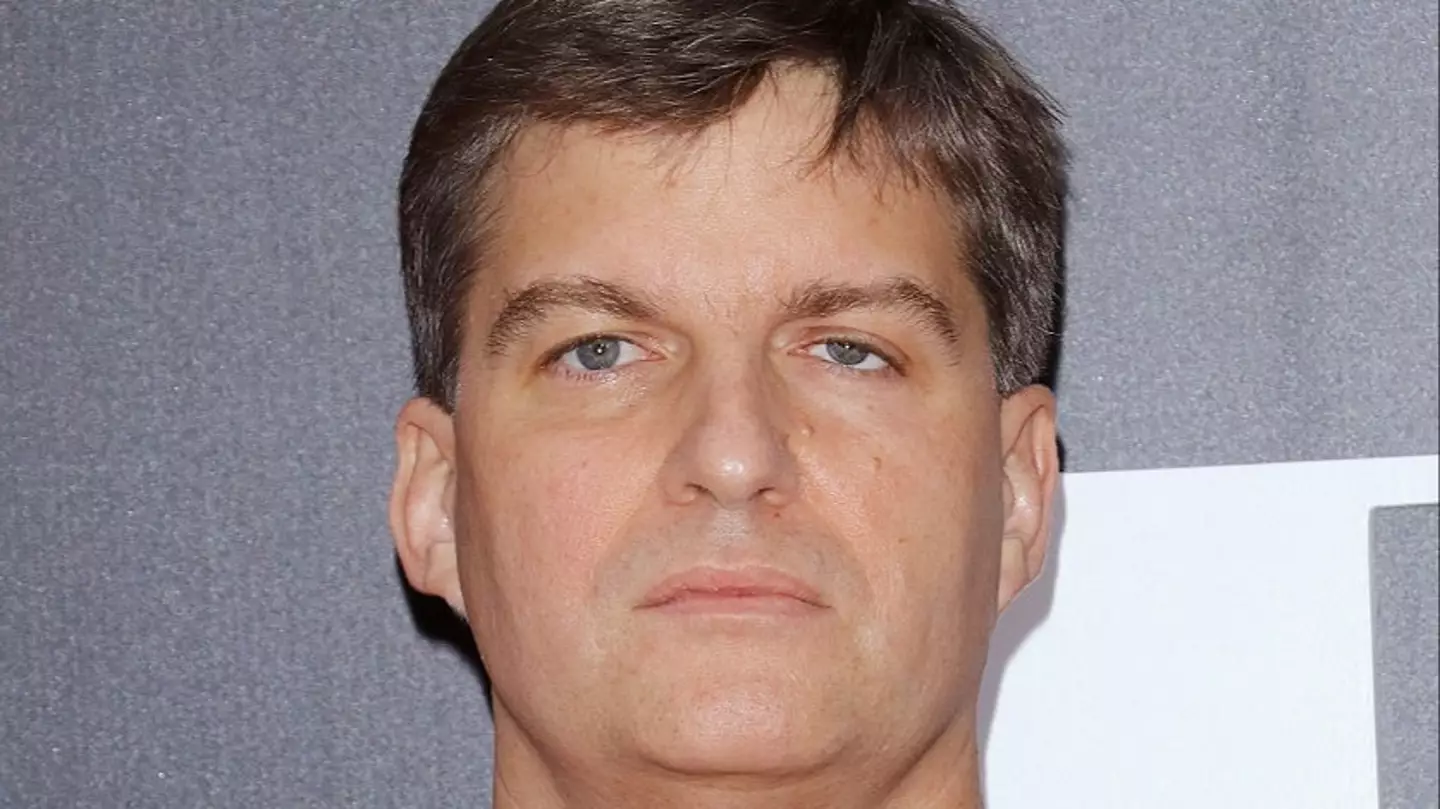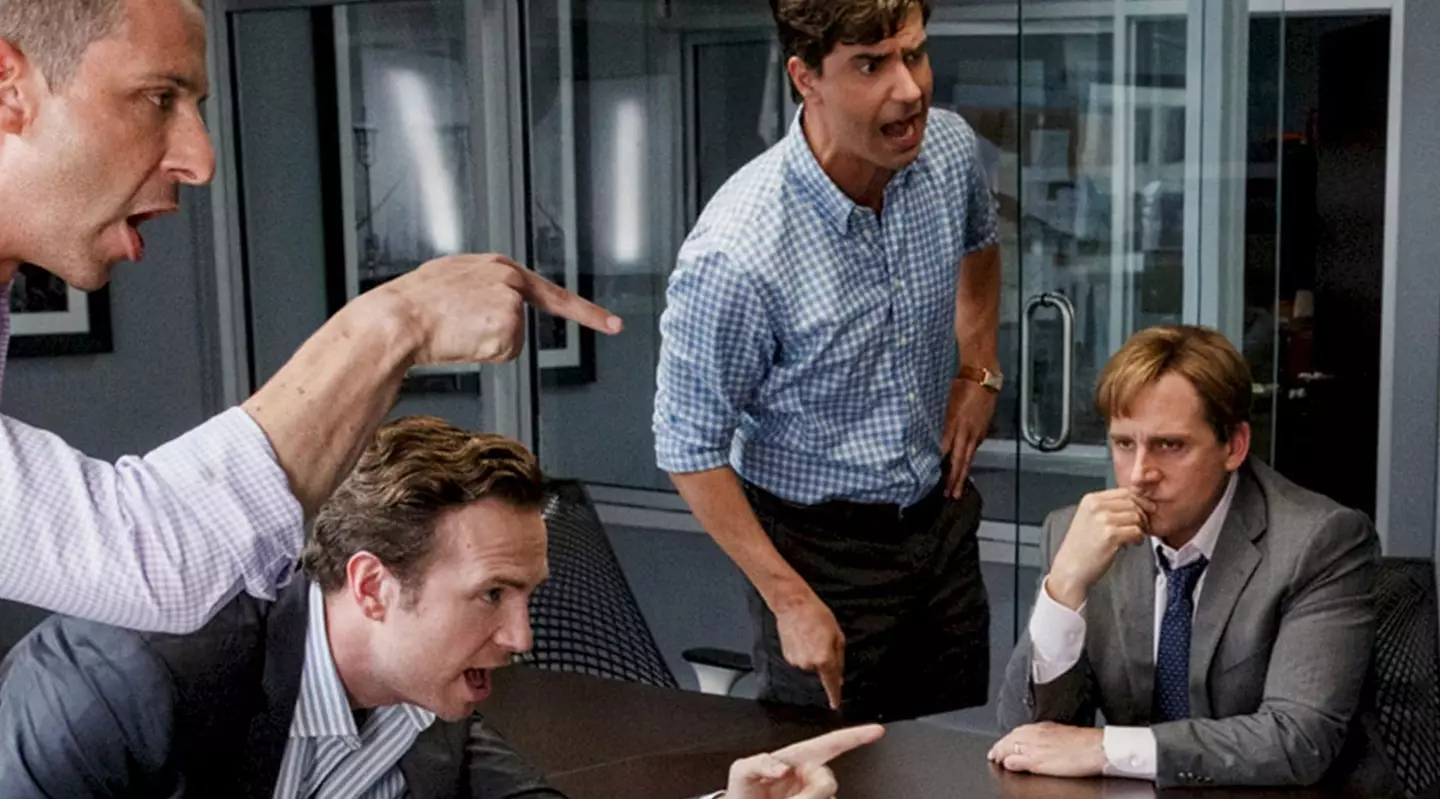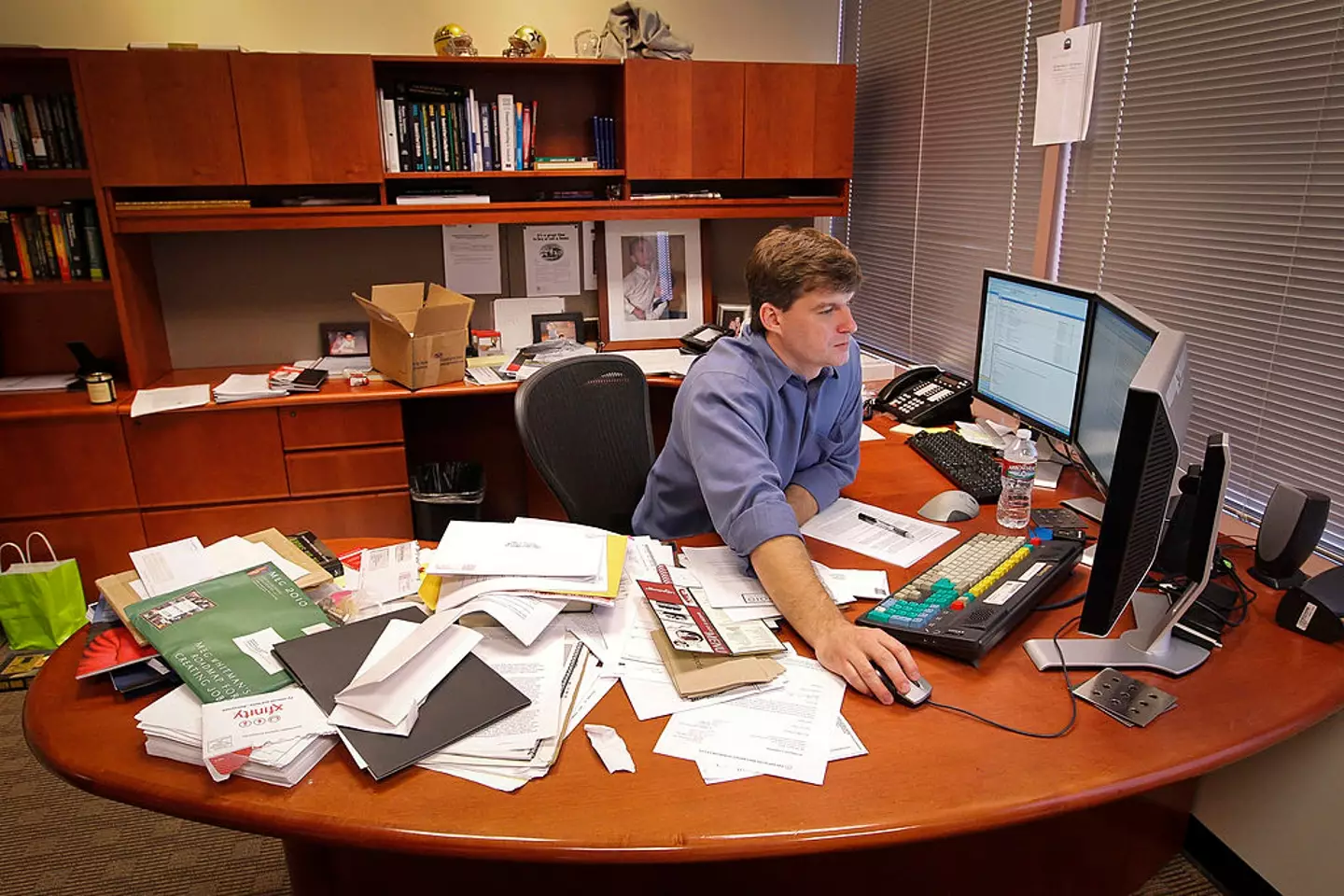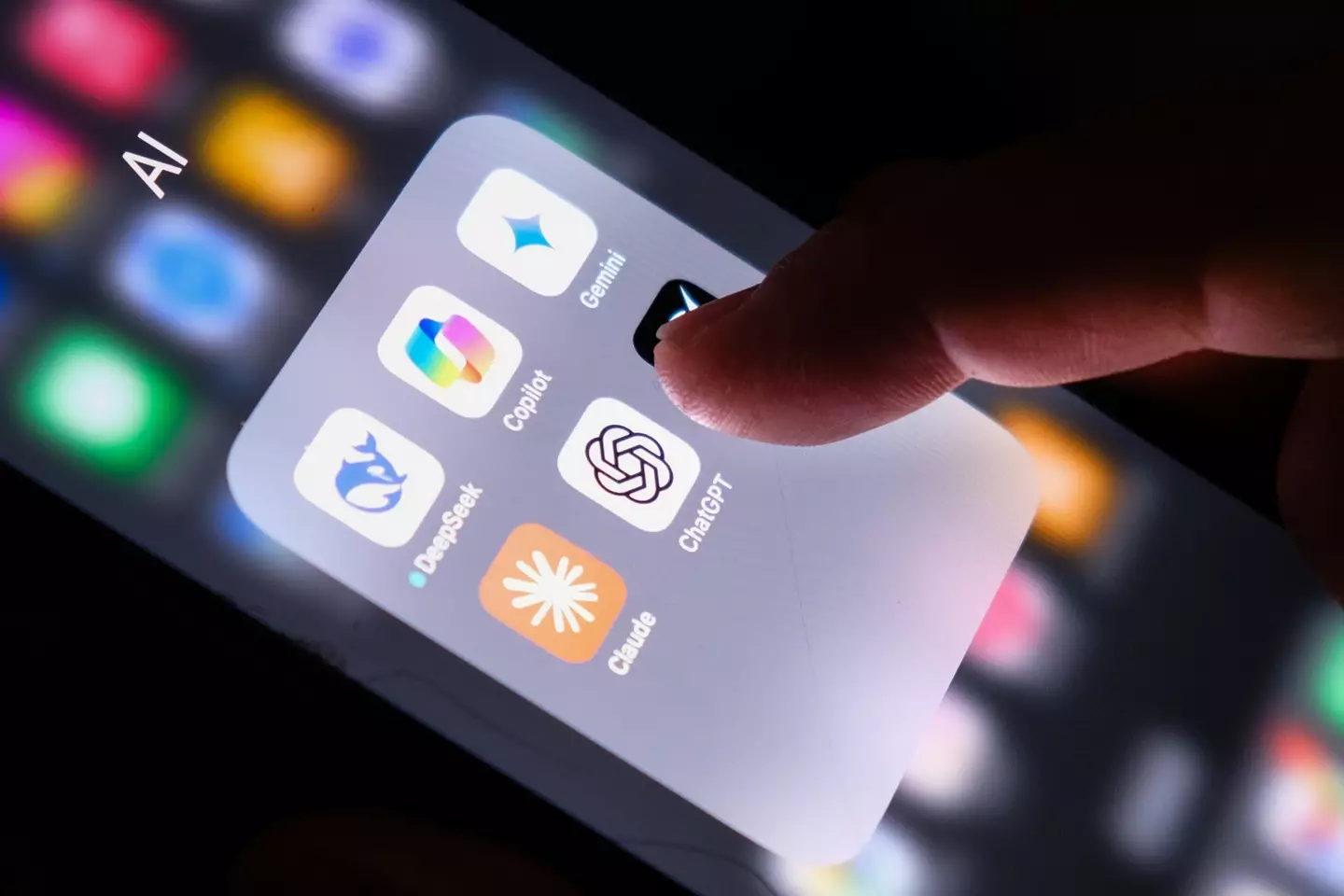
The Bank of England sent out a warning message prior to Michael Burry's suggestion that the 'bubble' around artificial intelligence will burst.
You may recognise the depiction of Michael Burry by Christian Bale in 2015 hit film The Big Short, which made headlines for portraying the 2008 financial crisis and how it was triggered by the US housing bubble.
Burry, an investor and the founder of Scion Capital, was one of the first major figures to clock on to the trend, years before it actually occurred.
He predicted the major housing crisis and betted against, or shorted, the market, ahead of the eventual fallout in 2007 and the subsequent 'Panic of 2008' as he noticed that lenders were issuing people 'high-risk' mortgages.
Advert
The performance earned Bale a 'Best Supporting Actor' nomination at the Oscars and it seems that Burry knows about the power of the character, as he posted a photo of Bale in the film along with a telling caption.

How did Michael Burry bet against AI?
He elusively wrote on X: "Sometimes, we see bubbles. Sometimes, there is something to do about it. Sometimes, the only winning move is not to play."
It's been revealed that Burry placed an eye-watering £840 million ($1.1 billion) on the chances of the growing bubble around AI bursting.
Documents show that the hedge fund manager gambled against two huge companies involved in AI, which has sparked concern among those looking to grow in the industry, as he had previously warned people about Bitcoin and 'meme stocks' in the past.
Burry has bet against software company Palantir and chipmaker Nvidia, both of whom are known for investing in developing AI systems - both stocks are currently down.
Warning from the Bank of England
The Bank of England has warned of a 'sudden correction' in global markets as a result of the sharp increase in valuations of top AI tech companies, as the likes of Open AI are now worth $500bn (£372bn), a $343bn (£263bn) increase from October 2024, while another firm in Anthropic went from a valuation of $60bn (£46bn) in March to $170bn (£130bn) in September.
In an official statement from the beginning of October, the Bank of England's financial policy committee warned: "The risk of a sharp market correction has increased.
"On a number of measures, equity market valuations appear stretched, particularly for technology companies focused on artificial intelligence. This… leaves equity markets particularly exposed should expectations around the impact of AI become less optimistic."
They said that the risks weren't fully accounted for, adding that 'the risk of spillovers to the UK financial system from such global shocks is material'.

To further highlight their point, research from Massachusetts Institute of Technology revealed that 95 percent of organisations are getting zero return from their investments in generative AI.
Concerns have started to grow over stock market valuations and a possible tumble if AI doesn't progress as many expect it to, which 'could drive a re-evaluation of currently high expected future earnings'.
They stated that a number of factors could change how the companies view AI, as the committee also said that the Trump administration's threats against the US Federal Reserve aren't helping.
"In the US, there has been continued commentary about Federal Reserve independence… A sudden or significant change in perceptions of Federal Reserve credibility could result in a sharp repricing of US dollar assets, including in US sovereign debt markets, with the potential for increased volatility, risk premia, and global spillovers," the Bank of England's financial policy committee said.

Reactions to Burry's actions
James Kardatzke, the co-founder of stock research platform Quiver Quantitative, claimed: "Michael Burry has a history of making large bearish bets when he perceives there to be a bubble, most notably prior to the housing market crash of 2008."
He further explained to This Is Money: "This new disclosure suggests that he now believes there is an AI bubble which is due to pop."
Palantir CEO Alex Karp has responded to Burry's actions after he bet against his company, calling the decision 'bats**t crazy', adding to CNBC: "The two companies he’s shorting are the ones making all the money, which is super weird."
"He’s actually putting a short on AI… It was us and Nvidia," he reaffirmed.
Topics: Artificial Intelligence, Technology, Money